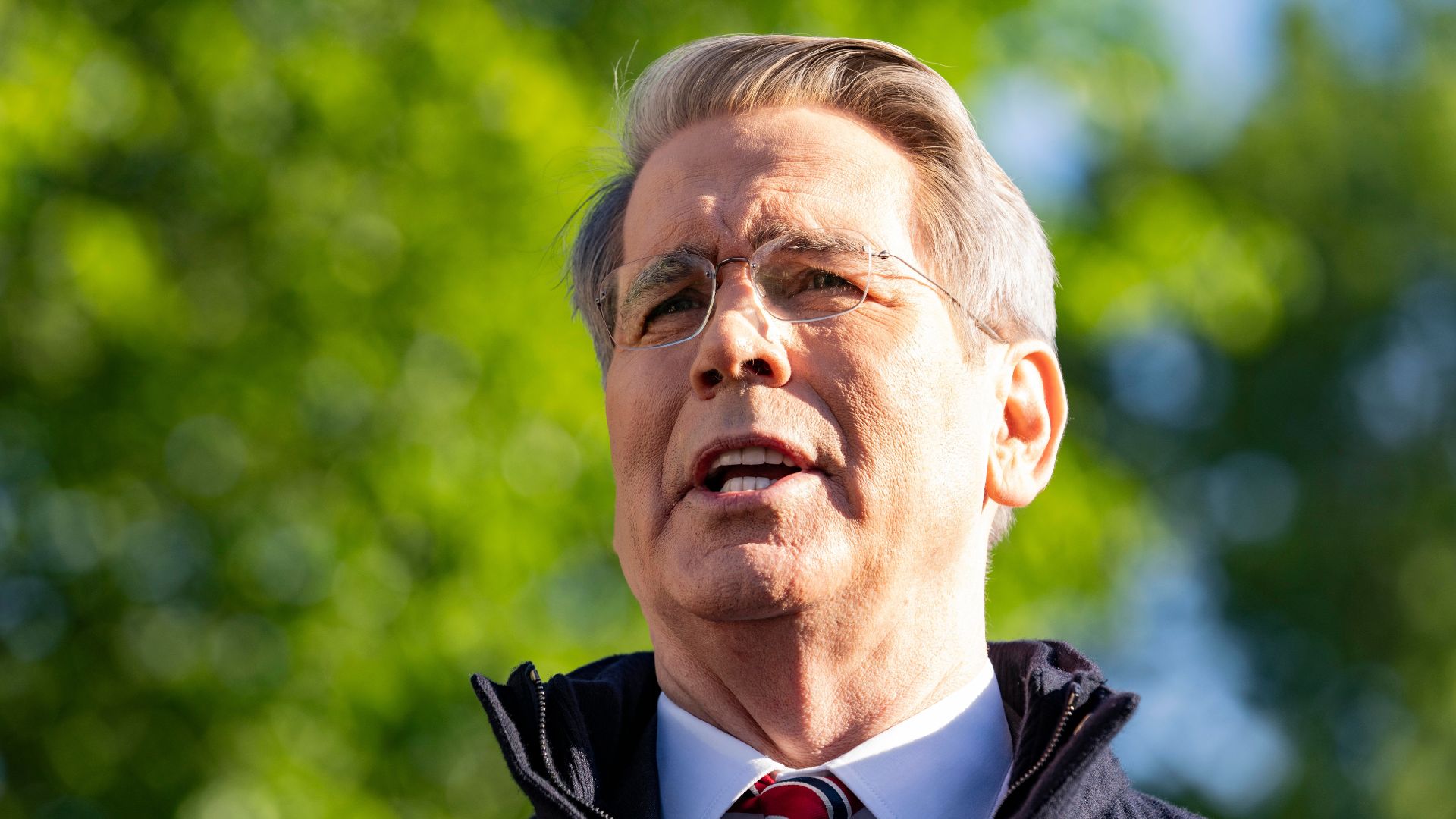
U.S. Treasury Secretary Scott Bessent corrected an MSNBC panel Tuesday morning after host Jonathan Lemire misstated the nature of a $20 billion lending arrangement between the United States and Argentina.
The exchange took place on the network’s “Morning Joe” program and quickly drew attention online for Bessent’s firm response.
Lemire referred to the deal as a “bailout,” echoing language used by several left-leaning commentators in recent days.
The agreement, finalized on October 20, allows Argentina to exchange its weakening peso for U.S. dollars to stabilize the nation’s reserves and prevent a currency collapse.
Under the arrangement, the United States earns interest on up to $20 billion lent at a fixed rate.
“How does a $20 billion bailout of Argentina help Americans?” Lemire asked during the segment.
Bessent immediately pushed back. “Well, do you know what a swap line is?” he replied.
This Could Be the Most Important Video Gun Owners Watch All Year
Lemire responded that he did, calling it a “currency swap,” before adding, “You’re the treasury secretary, sir.”
The comment drew an immediate correction from Bessent, who criticized the framing of the transaction as a bailout.
“Why would you call it a bailout?” Bessent said.
“In most bailouts, you don’t make money. The U.S. government made money. We used our financial balance sheet to stabilize the government, one of our great allies in Latin America, during an election. The president there won in a landslide.”
Bessent was referring to Argentine President Javier Milei, who was re-elected on a platform of free-market reforms and deregulation.
Milei’s government has pursued economic liberalization policies and strengthened ties with the Trump administration, emphasizing closer cooperation on trade, energy, and regional security.
The Treasury Secretary emphasized that the arrangement benefits both countries, describing it as a strategic investment rather than an act of foreign aid.
“I would rather use peace through economic strength than have us be shooting at narco boats coming off the shore if the government collapses,” Bessent said.
“We have a generational opportunity in Latin America to create allies.”
The swap line agreement, a financial tool often used among allied nations, allows Argentina to access dollar reserves through the U.S. Federal Reserve in exchange for its local currency.
The mechanism is designed to prevent short-term liquidity crises and stabilize exchange rates during periods of financial stress.
Economists have noted that the deal helps bolster Argentina’s foreign reserves amid ongoing inflationary pressures and market volatility.
For the United States, the agreement generates interest income while reinforcing economic stability with a key partner in the Western Hemisphere.
Bessent’s exchange with Lemire highlights the growing scrutiny of U.S. financial support mechanisms abroad, particularly as the administration focuses on strengthening partnerships in Latin America.
Argentina’s cooperation has become increasingly valuable as the U.S. seeks to counter narcotics trafficking and expand regional trade opportunities.
Following the segment, Bessent’s remarks circulated widely on social media, with many praising his clarification of how swap lines function and how they differ from direct bailouts.
The Treasury Department later confirmed that the agreement remains part of a broader U.S. strategy to support economic resilience among allied nations while ensuring measurable returns for American taxpayers.


![Scott Bessent Explains The Big Picture Everyone is Missing During the Shutdown [WATCH]](https://www.right2024.com/wp-content/uploads/2025/11/Scott-Bessent-Explains-The-Big-Picture-Everyone-is-Missing-During-350x250.jpg)






![Virginia Democrat Candidate's Leaked Texts Are So Bad Even MSNBC Turns on Him [WATCH]](https://www.right2024.com/wp-content/uploads/2025/10/Virginia-Democrat-Candidates-Leaked-Texts-Are-So-Bad-Even-MSNBC-350x250.jpg)
![Milwaukee Brewers’ Karen Fired After Confrontation with LA Dodgers Fan Goes Viral [WATCH]](https://www.right2024.com/wp-content/uploads/2025/10/Milwaukee-Brewers-Karen-Fired-After-Confrontation-with-LA-Dodgers-Fan-350x250.jpg)





